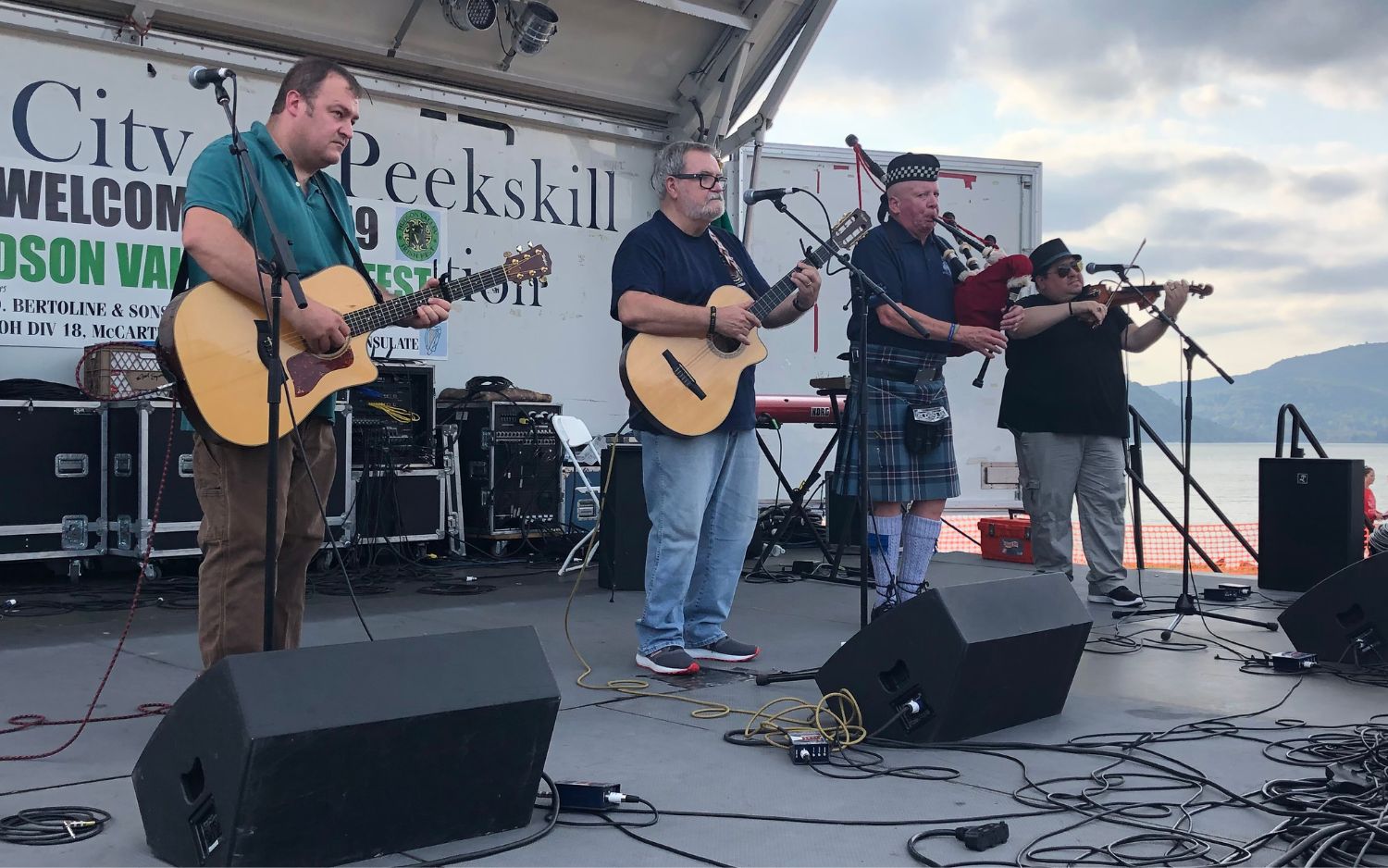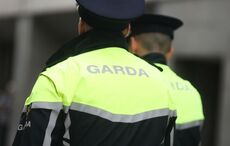A forgotten Irish Medal of Honor winner and Civil War hero finally had his heroism acknowledged with a military ceremony and a 21 gun salute in a pre Memorial Day event held last month.
A crowd of nearly 300 attended and full military honors were given at the installation of a headstone at the grave of Donegal native Martin McHugh in Danville, about 120 miles from Chicago.
Ceremony Committee Co-Chairman Larry Weatherford stated that McHugh had lain in an unmarked grave for 117 years.
"We are here to change that," Weatherford said.
Ray Johnston a researcher with the Medal of Honor military committee stated "I am proud and humble of what you have done here today."
The US Navy band a church choir and the Knights of Columbus also took part after a procession from McHugh’s former home to the graveyard..
Ralph Zoccolillo, chairman of the Indiana Blue Star Salute, told the crowd, "The phrase — We shall never forget — is epitomized in Danville for the way you have gone out of your way to honor Seaman McHugh."
A headstone along with a plaque now marks the b site of Seaman McHugh and his wife Catherine.
McHugh, who was an Irish immigrant, made his way to Danville after he, his mother and sister arrived in Boston from Ireland.
The discovery of McHugh’s unmarked grave came about after the determined efforts of local Irish American woman Machelle Long, according to Commercial News.
The Medal of Honor is the only U.S. military award that is worn from a ribbon hung around the neck and the only award presented by the president in the name of Congress. It is the greatest award given to American fighting heroes. More Medal of Honor recipients have been from Ireland than from any other foreign country.
McHugh was born in Ireland in 1837 just before the famine, probably in Donegal, and came to America after the the Great Hunger drove him out.
He joined the Union side in the civil war and served on board the USS Cincinnati.
His medal of honor citation, which mistakenly stated he was born in Ohio, reads: “The President of the United States of America, in the name of Congress, takes pleasure in presenting the Medal of Honor to Seaman Martin McHugh, United States Navy, for extraordinary heroism in action while serving on board the U.S.S. Cincinnati during the attack on the Vicksburg (Mississippi) batteries and at the time of her sinking, 27 May 1863.
"Engaging the enemy in a fierce battle, the Cincinnati amidst, an incessant fire of shot and shell, continued to fire her guns to the last, though so penetrated by shellfire that her fate was sealed. Serving bravely during this action, Seaman McHugh was conspicuously cool under the fire of the enemy, never ceasing to fire until this proud ship went down, 'her colors nailed to the mast.'
"General Orders: War Department, General Orders No. 17 (July 10, 1863)
Action Date: May 27, 1863
Service: Navy
Rank: Seaman
Division: U.S.S. Cincinnati"
Long told the local Danville Commercial News that she was first tipped off when Ray Johnston, a member of a Medal of Honor research group, called looking for any information on McHugh.
Long, a 16-year employee of the Department of Records in Danville, immediately began the research. She found various versions of his name and traced his ancestors and his descendants.
“I could have given up when I couldn’t locate a record of his burial,” she said. “But I felt driven to dig deeper.”
She had the support of her boss Vermilion County Clerk Lynn Foster, to discover all she could.
“I felt that since Martin McHugh had apparently gone well beyond his duty in serving our country, that we should take those extra steps necessary to find and honor him,” Foster said.
Long’s search began to preoccupy her and she often found herself tramping through local cemeteries looking for McHugh’s grave, Long said.
“I’d find myself turning on the computer at home and looking for that one little morsel of information that could help me prove where he was buried, or find out one more little bit about him.”
She finally came across his obituary in the Feb. 25, 1905, 'Daily Democrat' newspaper.
That led to documents listing McHugh, and his wife as buried at the former St. Patrick’s, now Resurrection Cemetery. Part of the confusion was that he was sometimes listed as McCue.
Last year , the government agreed to provide a gravestone for the Irish Civil War hero and his wife Catherine, who was buried beside him.
He continued to serve until the war was over, and then settled in Danville.
From his obituary it turned out that he had erroneously been reported in 1890 as having died of heart disease and had to show his neighbors and friends that he was still alive by walking “up and down the principal streets” to prove he was alive.
Long says her quest is not over and she is still seeking other descendants.




Comments